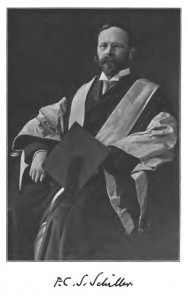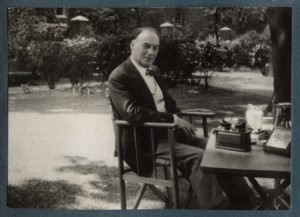 To William James
To William James
Berlin. February 21, 1887
I am very much obliged to you for your articles on Habit and on the Perception of Space. I have read them with great interest—all the more because they go over some of the points you brought out in Phil. 2 and 9. I remember how much the idea of the nervous system as a sort of recording angel struck me at that time. It touches one of my pet questions, the sanction of Ethics, the supposed disappearance of which alarms Mr. Lilly and his school. I can’t help feeling that if people were more inclined to look for the sanction of morals in the facts, they would stop worrying about the future of morality.
Strong and I intend to spend the coming vacation in England, where we find we can go very cheaply by way of Hamburg. My address will therefore be care of Brown, Shipley & Co, and anything sent to me for Strong will reach him. He is looking well and says he feels very much better. He has been working two hours a day over Lotze’s psychology and hearing lectures with me. He seems to be a little afraid of himself in view of the probability of his getting a chance to teach at Cornell next winter. I tell him he is well prepared enough and should thank his stars that he can begin to learn in a practical way by teaching. Still, considering what good friends we are, Strong tells me astonishingly little about himself, perhaps because he thinks I don’t understand how he feels about things, or perhaps because he is naturally reserved. But the fact is I have no idea what has been the matter with him this winter, except that evidently he has not been at ease. I myself have done very little tangible work, although I have been reading all sorts of things, especially Goethe. I don’t think my time has been wholly wasted, as I have gathered a good many impressions besides a working knowledge of German—enough, that is, to read and understand, but not enough to talk connectedly. I ought to have got along much better with the language, but I have really had very little occasion to speak it, and the pronunciation is so abominably hard that I hardly trust myself with more than a syllable at a time. I enjoy hearing it, however, especially in the hearty, honest native way. On the whole I am very glad I came to Germany, although the superiority of the place from the student’s point of view is not so great as I had imagined. In health too, I am feeling well, better a great deal than last year when, as you may remember, I was a little under the weather. In Spain, too, during the summer my stomach became refractory, but this cooler and moister climate made everything all right again. For a while I had some trouble with the complicated cooking here in vogue—but custom can make one swallow any dish, even if it contains thirty nine articles.
From The Letters of George Santayana: Book One, [1868]-1909. Cambridge, MA: The MIT Press, 2001.
Location of manuscript: The Houghton Library, Harvard University, Cambridge MA




